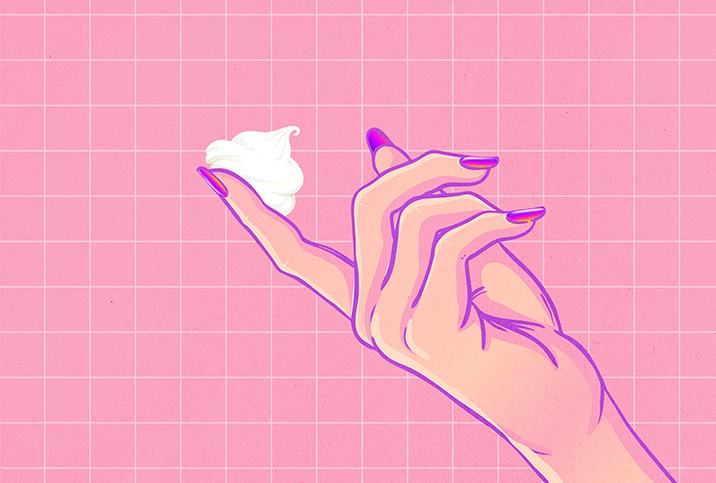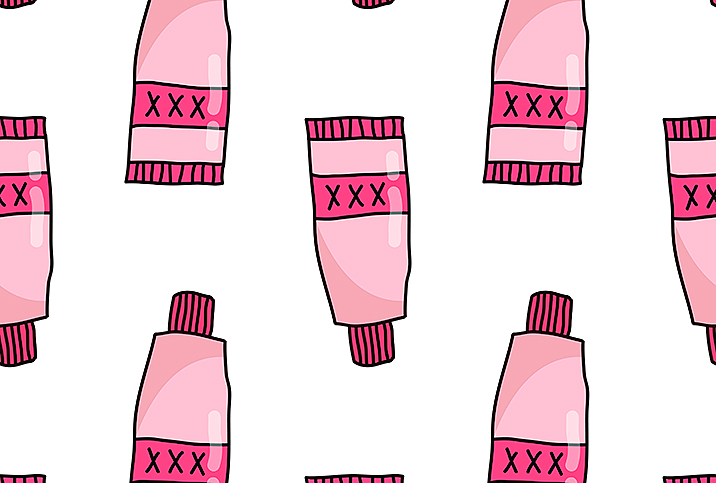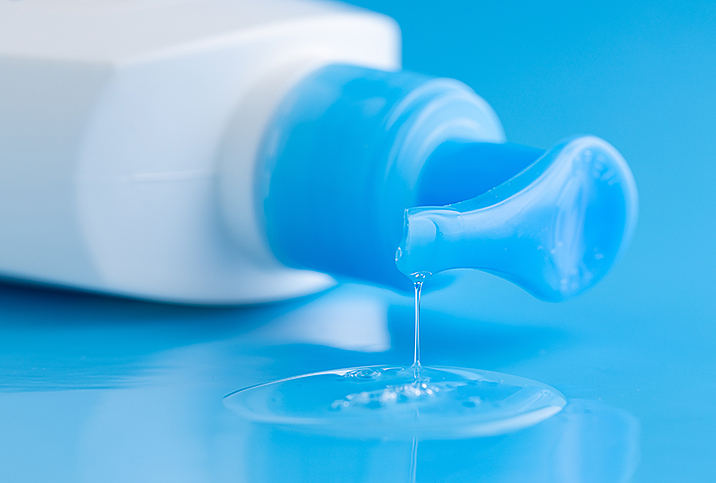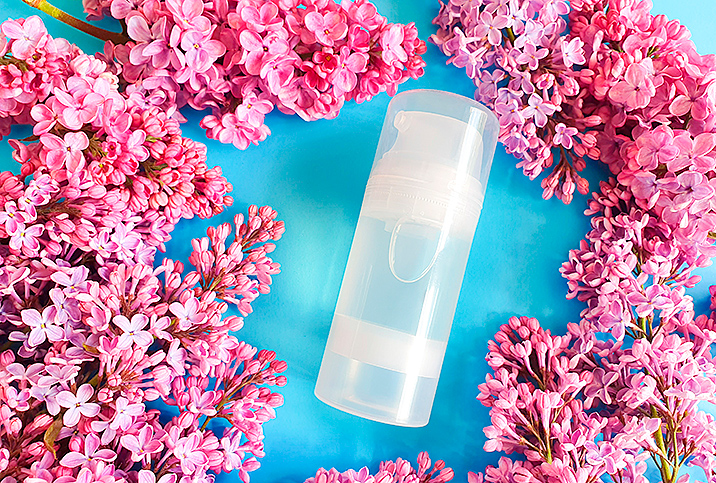Keep Your Vagina Happy With High-Quality Lube

There are a lot of different lubes on the market to enhance your sex life. But while they might sound fun and exciting to use (think fire and ice marketing), they can wreak havoc on your vagina. Can you be adventurous with your lubricant and still keep your vagina happy?
Using artificial lubricants can help moisturize the vulva and vagina, decrease friction and enhance sexual pleasure, said Kecia Gaither, M.D., MPH, FACOG, who is double board-certified in OB-GYN and Maternal-Fetal Medicine. But while lubes are an amazing addition to the bedroom, they aren't all created equal when it comes to vaginal health.
The problem with some lubricants
"Vaginal health is a top consideration when looking at lube options," said Lori Davis, DNP, a board-certified nurse practitioner and sex counselor.
Unfortunately, it can be hard to tell the difference between a good lube and one that's going to cause issues downtown. When it comes to your vaginal health, remember what you learned in your high school science class: Chemical compounds, pH balance and osmolality all come into play.
Unpronounceable ingredients
The more ingredients a lube has or hard-to-pronounce chemical components, the greater the potential for it to irritate your vagina. According to Davis, some ingredients to avoid include:
- Parabens
- Chlorhexidine gluconate
- Petroleum
- Antimicrobial
pH balance
"The vagina itself maintains a pretty narrow range of pH of 3.8 to 4.5," Davis noted. "It would be helpful if we knew what the pH levels [of lubricants] were, but it's hard to find that information out."
Lubricants in stores don't have pH levels on their labels, so it's difficult to know what exactly you're getting. According to Davis, most of the standard products (think Astroglide, K-Y Jelly, Durex) tend to have pHs that aren't in line with the pH of the vagina. This mismatch can cause yeast infections or bacterial vaginosis.
Osmolality
Another thing you won't find on popular lube packaging is the osmolality, or the number of particles present in a solution. A lube with higher osmolality is going to pull moisture from your skin, leaving you feeling dry and irritated. An average vaginal osmolality is around 300 mOsm/kg, Davis said, but a product such as K-Y Jelly comes in at around 2,000.
The only way to really know about the pH and osmolality of your lube is to check the World Health Organization's lubricant properties chart.
So WTF kind of lube is good for your vagina?
It might seem like all lubes have the potential to irritate your vagina, cause infection or fly under the radar of ethical marketing practices. But just as you would shop around for a decent sex toy or a good TV, you deserve to have the highest quality lubricants.
Here are some things to consider when it comes to choosing a lube.
Sensitive skin lubricants
Lubricant packages that advertise for sensitive skin can have more natural ingredients and better pHs, Davis said. Look for ones that say this on the label because they may be more agreeable with your vagina.
Oil-based lubes
This type shouldn't be used with condoms since it can cause breakage. But if you aren't using one or need lube for non-penetrative sex only, going with simple coconut oil, avocado oil or aloe vera is the most natural and cost-effective.
You may have heard oil-based lubes can create a biofilm or otherwise disrupt pH balance. Davis said she hasn't found any good research backing up this claim. And oil-based lubes are cheap and easy to access. "Theoretically, you can see how a thick oil in the vagina could cause a biofilm and be a problem," Davis said, but most women won't have an issue. Test the oil on your arm first to make sure you don't have an allergic reaction to the product.
Keep it simple
Straightforward products with few ingredients are your best bet. Arousal creams, or heated, scented or flavored lubes, can result in skin inflammation and infections, according to Gaither.
If you're using a condom, stick with a high-quality water-based lube or, better yet, use a silicone-based one. According to Gaither, both water-based and silicone-based lubes are not only safe for condom use but they're hypoallergenic, meaning you're less likely to have an allergic reaction. Just remember: Silicone oils can break down silicone sex toys.
Lubes from trusted companies
The K-Y Jelly on your partner's nightstand might be a well-known brand, but that doesn't mean it's legit for your vagina. Though you may be able to use water-based lubes just fine, it could be time for an upgrade. Skip the pharmacy and head to your trusted local sex store or a website dedicated to selling quality lube. They are the ones that can tell you if their lube has a pH and osmolality that agrees with your skin and tissues.
You might consider having two different types of lube for different sex play, but the bottom line is lube can and should be a part of your sexual health. "You just need to find the one that works for you," Davis said, "and feel empowered to use it every single time."


















